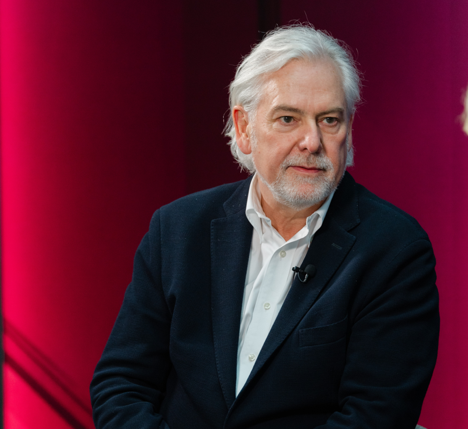In pursuit of a smoke-free world

Philip Morris International (PMI) made the public commitment in 2016 “to build a future without cigarettes” by providing adult smokers with “smoke-free” alternatives that are not without risks, but promise to be a better alternative to cigarette smoking.
It is quite a counterintuitive move considering that the New York- listed company headquartered in Stamford, Connecticut, made a fortune from people lighting up cigarettes, particularly the market-leading Marlboro.
That intimate knowledge of adult smokers, however, is precisely what informed its decision to make this “biggest shift” in its corporate history.
Put simply, it was inspired to make this seismic change by its core market that is actively looking for “less harmful, yet satisfying, alternatives to smoking.”
To remain relevant to that market and ensure “sustainable success,” PMI had to find new ways to deliver that nicotine fix without burning a cigarette, the most harmful form of nicotine consumption.
PMI thus pledged to marshal its considerable human as well as financial resources to ultimately make cigarettes “history,” according to PMI chief executive officer Jacek Olczak, who is well aware that society likewise demands that companies such as PMI “act responsibly.”
Market observers and the general public were understandably skeptical about PMI’s bold move, but the numbers today are proving doubters wrong.
Iqos, which uses patented induction technology to heat—rather than burn—tobacco, overtook its leading cigarette brand, Marlboro, in terms of net revenues in the fourth quarter of 2023, less than 10 years since its public launch in 2014 in Nagoya, Japan, and Milan, Italy.
“For the first time in history, smoke-free products have surpassed cigarette combustibles,” Olczak underscored at the Technovation event last month at its research and development headquarters in Neuchatel, Switzerland.
Iqos is now available in 90 countries and used by 30.8 million people worldwide, from zero just 10 years ago. Then in 25 of those markets, Iqos accounts for more than half of total net revenues.

Indeed, with Iqos, PMI was able to create a $10-billion smoke-free business in a decade.
PMI, through its local affiliate PMFTC Inc., a member of the Lucio Tan Group, launched the Iqos in the Philippines in 2020 and its latest version, the Iqos Iluma, along with the heat sticks under the Terea brand, are gaining popularity among switchers.
Olczak attributed the rising sales to the continuing innovation that the company has done to the Iqos line, making more cigarette smokers switch to this next-best alternative to quitting smoking outright.
Complementing this move is PMI’s acquisition of Swedish Match, which produces leading nicotine pouches and snus —a smokeless, moist powder tobacco pouch from Sweden—products.
A year after the takeover, he reported “very strong results” driven mainly by the stellar performance of nicotine pouch brand Zyn, the fastest-growing smoke-free brand in the United States that is also now available in the Philippines.
PMI is single-minded in its focus to push these smoke-free products because while cigarette smoking is indeed trending lower with more people quitting cold turkey due to the link between cigarette smoking and a host of diseases such as emphysema and cancer, there are still 1.1 billion people who regularly smoke cigarettes, most of them in developing countries.
PMI believes that despite repeated health warnings, campaigns focused solely on cessation as well as increasing tobacco control measures, this number will not change significantly in the near future unless alternatives are presented.
For PMI, it has invested as much as $12.5 billion in the research, development and commercialization of these smoke-free products since 2008 and has involved some 1,500 engineers, scientists, technicians and support staff.
The massive investments poured into the smoke-free products have fortunately been paying off.
As of the end of the second quarter this year, as much as 38 percent of PMI’s total revenues came from smoke-free products.
Getting to this point, however, has not been easy and the road ahead toward achieving PMI’s vision to make cigarettes obsolete is long.
But PMI is fixed on its vision and the Philippines will have a big role to play in meeting the global objective as the country is considered one of PMI’s most important markets.
According to PMFTC spokesperson Dave Gomez, PMFTC is one of the top five markets of PMI and one of the biggest markets for Marlboro, thus a market where the massive shift to smoke-free products needs to happen.
“We still have more than 15 million Filipinos smoking and most have yet to be aware of or have access to better alternatives to cigarettes,” Gomez said.
Such is the case in other markets, but the market response has fueled PMI’s ambition to derive as much as two-thirds of its revenues from smoke-free products by 2030.
But this will not be met, Olczak said, if some countries will continue to ban these smoke-free products while continuing to allow cigarettes to be sold.
This, however, will not deter PMI from continuing on with its “very exciting journey” toward its mission to have a smoke-free world.
That means that PMI will continue to invest in improving its smoke-free products “until we reach the last smoker.”





















